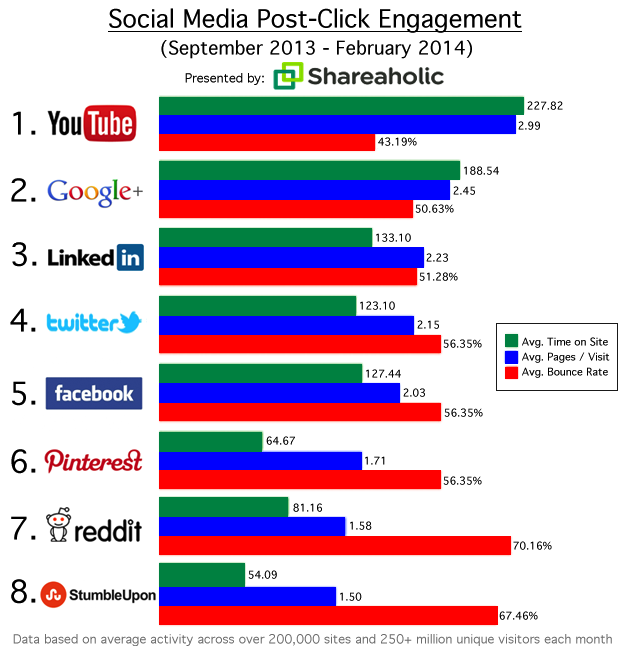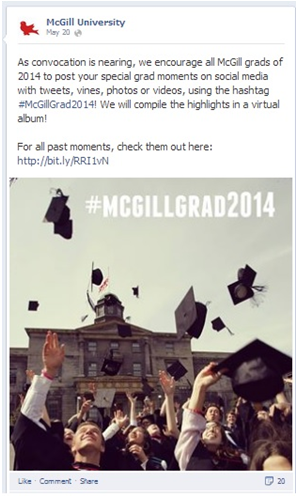When it comes to creating smart social content that will engage prospective students while keeping current students talking about your school, you might be surprised how much leverage your academic calendar will give you. What’s even more surprising is that a staggering amount of schools don’t utilize their academic calendars to their full potential in the realm of social media marketing and engagement.
The average academic calendar contains dozens of events throughout the year that can easily spark a discussion on social media platforms, as well as specific ideas that could be used as a springboard for marketing campaigns and initiatives. Using your academic calendar as a sort of blueprint for your social media engagement is not only a great way to get students and prospective students talking, but to bring attention to programs, special events and faculty.
Academic and Editorial Calendars: Like Peanut Butter and Chocolate
Your academic calendar and social media editorial calendar go together as intuitively as peanut butter and chocolate. Since students are naturally more drawn toward certain behaviour and interests at different points of the calendar, your social content will benefit from leveraging this visibility. For example, posting relevant advice or asking students to submit their study tips when it’s exam season is bound to get more responses and traction than doing so during vacation. Decide on publishing frequency and general scope of subject matter to develop an editorial calendar, using your blog as a base for repurposing content and considering the best tone and post type to use for each social channel. Recent surveys are showing that students are most interested in interacting with colleges and universities on YouTube and Instagram, so ensure that videos, original and curated images and infographics are part of your content strategy and development.

Hashing Out the Hashtag
The hashtag isn’t just for Twitter anymore – Facebook, Instagram, Google+ and many other social networking sites now use the hashtag in posts. It’s a great way for creating buzz around an event. It gives people a common idea with which to tag their posts, and it also makes searching for content revolving around your event or announcement much easier. Uniting posts with a shared hashtag makes students feel included and can help foster a sense of school spirit and community. Whether it’s #countdowntofinals or #midtermmadness, the use of a clever or specific hashtag on social media can turn your event into a phenomenon.
Example: In advance of McGill University’s graduation ceremonies this year, they promoted the use of the hashtag #McGillGrad2014 across Twitter, Facebook, Instagram and even Vine. This not only allowed students to share their experiences through photos and videos, but meant that there was a central, easily searchable hashtag linking all of this content together. This allowed the university to compile an album of photos and videos documenting graduation using the students’ submissions. A simple use of a hashtag had the added bonus of providing a ton of top-quality and free content that they could then use for their higher education marketing.

The Right Time
Use your academic calendar to your advantage when you’re promoting specific programs or courses to students on social media. Getting students to engage in a post about a new course in the summertime is probably not the best idea, as most students aren’t enrolled in the summer and will probably not be checking your pages frequently.
Likewise, if you’d like to run a photo contest, don’t schedule it around a time like finals or midterms when students are likely to be busy and stressed out. Chances are, they won’t have the time to really engage with your Facebook photo contest and you’ll get a less than desirable turnout. Keeping a close eye on the academic calendar ensures that you’re not wasting effort, and that you get the most mileage out of your posts.
If you’ve got a great new course that will be offered next semester, start advertising it around the timeframe where students are registering for next semester. Doing it sooner means people are going to forget by the time registration rolls around, while later doesn’t do much good because they’re unable to take action.
Example: Herzing College in Toronto tweeted about mock trials being one of the many ways in which their Paralegal students get hands-on training in March, around the time that applications are being filled out by prospective students. This is a great way to give a little more information about your program at a time where it’s going to be most considered. If a student is on the fence about where they want to attend school, a well-timed tweet touting the benefits of your programs could be very influential on their decision. Because of the timing, they’ll already be weighing costs and benefits of programs in their head, so your tweet or post might be the tipping point.

Creating a blog calendar is an effective higher education content strategy to stay organized and consistently deliver timely, fresh material to your website and for sharing on social media. By tailoring your posts to specific items in your academic calendar, you’ll not only get much more engaging posts, but more relevant ones as well. It can actually give you ideas for creating engaging tweets, posts or YouTube videos that you may not have previously considered.
How do you use your academic calendar to bolster your social engagement?





